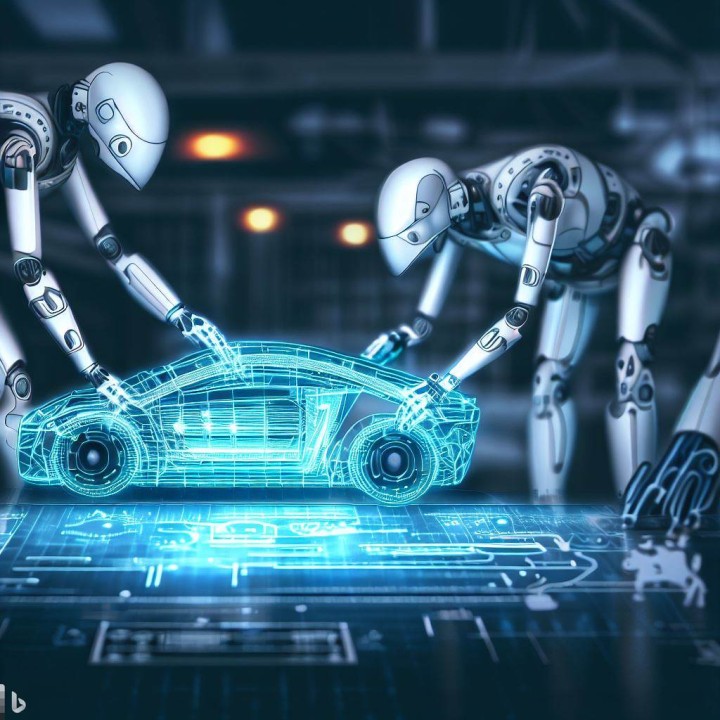
AI’s Fast Lane: Revolutionizing the World of Cars
Artificial Intelligence (AI) has found its way into virtually every industry, altering the way we perceive and interact with technology. But nowhere is this change more palpable than in the automotive sector. With rapid advancements in machine learning, deep learning, and neural networks, AI is steering the car industry to a brighter, smarter future.
Cars have transcended from being mere transportation means to being intelligent machines capable of self-diagnosis, real-time decision-making, and in some cases, self-driving. Let’s embark on a journey to understand the pivotal role AI plays in modern automotive advancements.
The Journey: From Cruise Control to Autopilot
It was not long ago when cruise control was the pinnacle of car technology. It seemed futuristic – setting your vehicle to maintain a steady speed without constant acceleration. But AI has pushed this envelope further. Today, vehicles don’t just maintain speed; they can sense and respond to their surroundings.
Advanced Driver Assistance Systems (ADAS) have now become a standard feature in many vehicles. From lane-keeping assistance to automatic emergency braking, cars have become more sentient, ensuring safer rides for all on board.
AI-powered Innovations in the Car Industry
Self-driving Vehicles
Arguably the most tantalizing application of AI in cars is the autonomous vehicle. Self-driving cars rely on a multitude of sensors, cameras, and algorithms to perceive their environment, make decisions, and navigate roads, all while ensuring maximum safety.
Smart Traffic Management
With AI, traffic management systems can predict congestion, reroute traffic in real-time, and optimize traffic lights to ensure smooth flow, reducing gridlocks and commute times.
Predictive Maintenance
AI can preemptively identify potential car issues by analyzing data from embedded sensors. By predicting when parts might fail or require maintenance, vehicle longevity is enhanced while reducing sudden breakdowns.
Enhanced In-car Experience
Infotainment systems, powered by AI, offer personalized experiences for drivers and passengers. From voice-controlled operations to personalized playlists and real-time event suggestions, the in-car experience has never been this advanced.
Security and Surveillance
Modern cars come equipped with AI-powered security features. Facial recognition, anomaly detection, and real-time threat analysis ensure both the car and its occupants are safe from potential threats.

Challenges Along the AI Highway
While the future looks promising, integrating AI into vehicles comes with its set of challenges. Ethical considerations, especially regarding decision-making in critical situations, is a major concern. Furthermore, the vast amounts of data these systems require present both storage and privacy concerns.
Moreover, to make self-driving cars a mainstream reality, we need infrastructural upgrades, clear regulations, and a shift in public perception about handing over the driving wheel to machines.
A Glimpse into the Future
The next decade will witness AI embedding itself further into the automotive industry. Cars will not only become smarter but also more interconnected. Vehicle-to-vehicle (V2V) and vehicle-to-infrastructure (V2I) communication will pave the way for more synchronized and safer roads.
As AI continues its relentless drive forward, it’s not just about transforming vehicles but revolutionizing our very concept of mobility and transportation. The journey is long, but the destination promises a harmonized coexistence of man, machine, and the road ahead.
